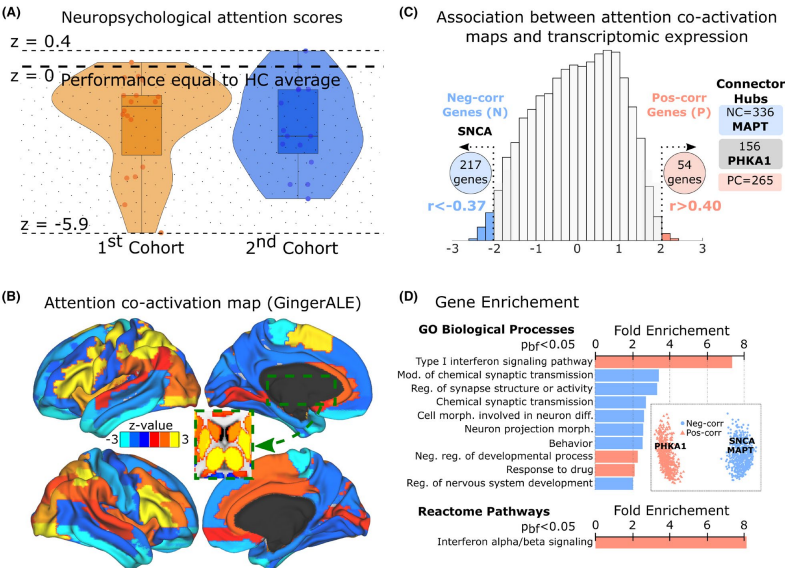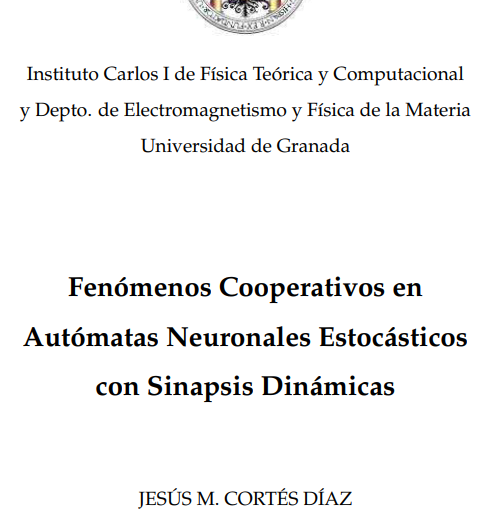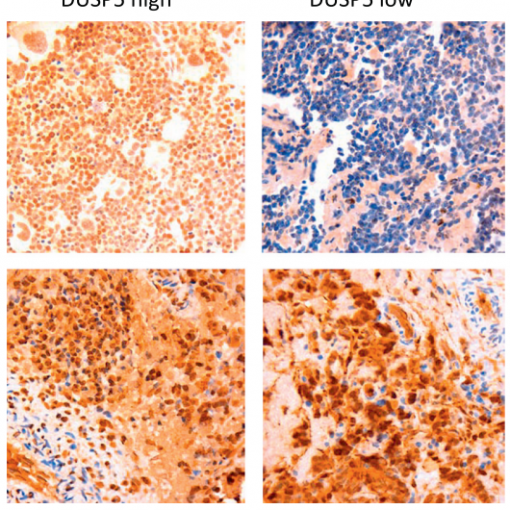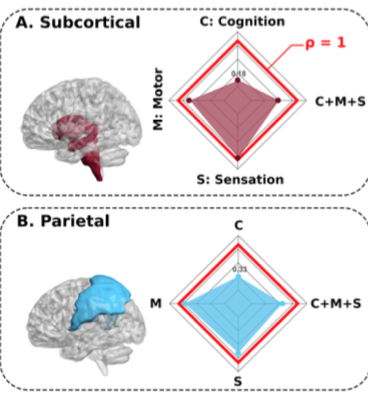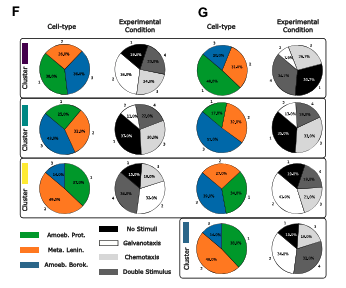Antonio Jimenez-Marin, Ibai Diez, Maria C. Caballero, Isidro Ferrer, Garazi Labayru, Pol Andres-Benito, Andone Sistiaga, Jorge Sepulcre, Adolfo Lopez de Munain, and Jesus M. Cortes. Transcriptional signatures of synaptic vesicle genes define myotonic dystrophy type I neurodegeneration. Neuropathology and Applied Neurobiology . In press, 2021. biorxiv: [pdf] article: [pdf]
Abstract
Aim: To delineate the neurogenetic profiles of brain degeneration patterns in myotonic dystrophy type I (DM1).
Methods: In two cohorts of DM1 patients, brain maps of volume loss (VL) and neuropsychological deficits (NDs) were intersected to large-scale transcriptome maps provided by the Allen Human Brain Atlas (AHBA). For validation, neuropathological and RNA analyses were performed in a small series of DM1 brain samples.
Results: Twofold: (1) From a list of preselected hypothesis-driven genes, confirmatory analyses found that three genes play a major role in brain degeneration: dystrophin (DMD), alpha-synuclein (SNCA) and the microtubule-associated protein tau (MAPT). Neuropathological analyses confirmed a highly heterogeneous Tau-pathology in DM1, different to the one in Alzheimer’s disease. (2) Exploratory analyses revealed gene clusters enriched for key biological processes in the central nervous system, such as synaptic vesicle recycling, localization, endocytosis and exocytosis, and the serotonin and dopamine neurotransmitter pathways. RNA analyses confirmed synaptic vesicle dysfunction. Conclusions: The combination of large-scale transcriptome interactions with brain imaging and cognitive function sheds light on the neurobiological mechanisms of brain degeneration in DM1 that might help define future therapeutic strategies and research into this condition.
